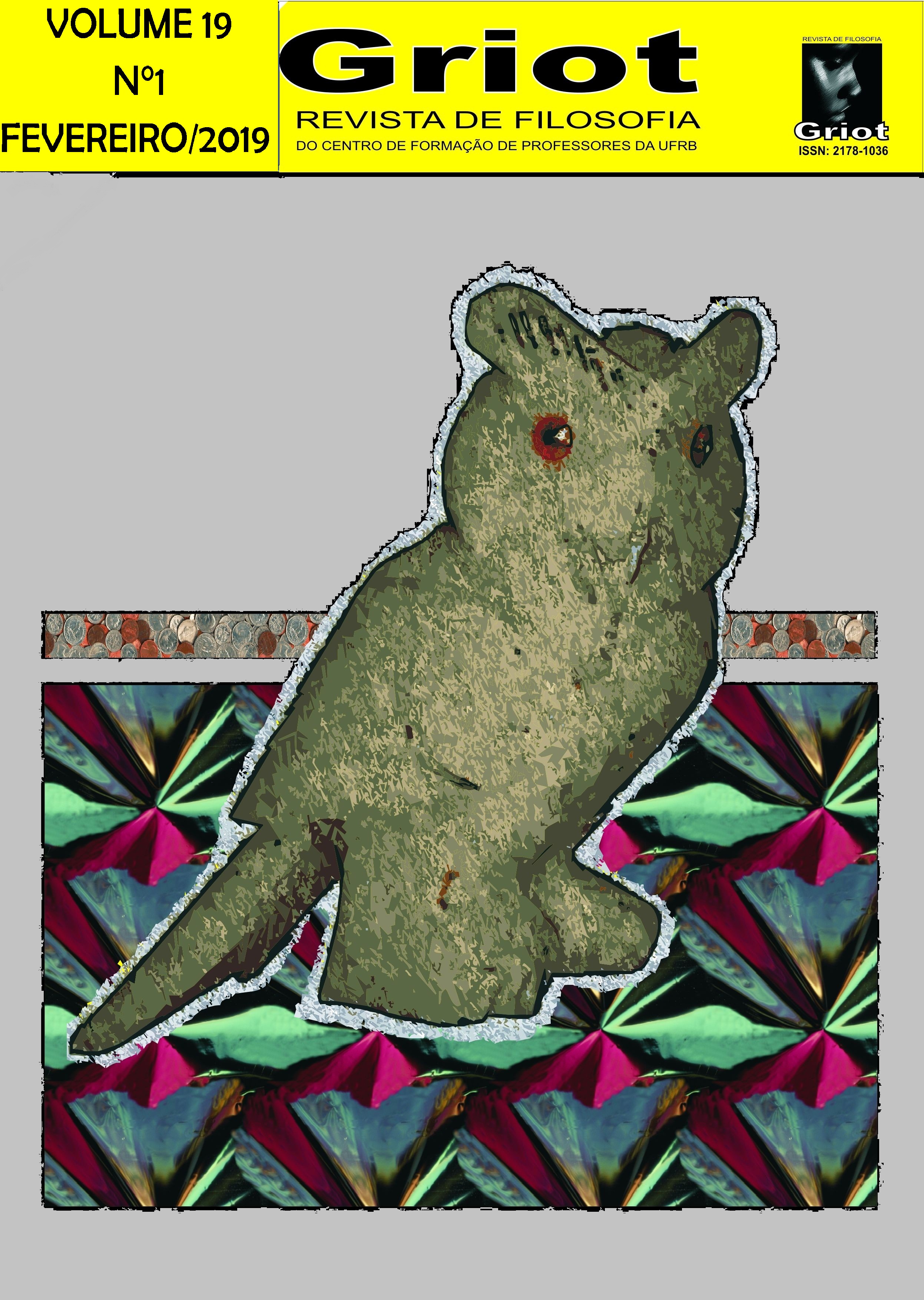Poetic thresholds of Giorgio Agamben's political thought
DOI:
https://doi.org/10.31977/grirfi.v19i1.946Keywords:
Giorgio Agamben; The fire and the tale; Poetry and Thought; Literature and Politics; Comparative Literature.Abstract
The article presents the book The fire and the tale (2018), by the Italian philosopher Giorgio Agamben, discussing some of the poetic thresholds of his political thought. Is departs from Agamben's implicit debates with Jacques Derrida on language and literature, passing by the poetic act as an act of resistance, defining the inoperative potency present in gestures of discursive interruption, and finally arrives at the discussion of life and work in a biopolitical context. Following the order of the chapters, but without intending to accomplish them, the assumption of the article is that the Italian – who has poetry and literature generally linked to a kind of "first phase" of his work – also in the biopolitical series named Homo Sacer used poetry and literature as a strong strategy of resistance and opening of thresholds before the organized logic of the sovereign power. If by one side the book can be read as forming a hermeneutic circle, the chapters, on the other hand, open the main lines in which philosophy, literature, poetry, and politics intersect for the Italian thinker. Therefore, some of the arguments set forth in The fire and the tale report in direct relation to notions and arguments present in other Agamben’s books and in certain interlocutors are also included in the article.
Downloads
References
AGAMBEN, Giorgio. A comunidade que vem. Lisboa, Presença, 1993.
AGAMBEN, Giorgio. A linguagem e a morte. Belo Horizonte, EDUFMG, 2006.
AGAMBEN, Giorgio. Estado de exceção. São Paulo, Boitempo, 2004.
AGAMBEN, Giorgio. Profanações. São Paulo, Boitempo, 2007.
AGAMBEN, Giorgio. O que resta de Auschwitz. São Paulo, Boitempo, 2008.
AGAMBEN, Giorgio. O Reino e a glória. São Paulo, Boitempo, 2011.
AGAMBEN, Giorgio. A ideia de prosa. Belo Horizonte, Autêntica, 2012a.
AGAMBEN, Giorgio. Bataille y la paradoja de la soberania. Teología y lenguaje. Buenos Aires, Las Cuarenta. 2012b.
AGAMBEN, Giorgio. Categorias italianas. Florianópolis, EDUFSC, 2014.
AGAMBEN, Giorgio. Meios sem fins. Belo Horizonte, Autêntica, 2015a.
AGAMBEN, Giorgio. Bartleby, ou da contingência. Belo Horizonte, Autêntica, 2015b.
AGAMBEN, Giorgio. A potência do pensamento. Belo Horizonte, Autêntica, 2015c.
AGAMBEN, Giorgio. O uso dos corpos. São Paulo, Boitempo, 2017.
AGAMBEN, Giorgio. O fogo e o relato. São Paulo, Boitempo, 2018a.
AGAMBEN, Giorgio. A aventura. Belo Horizonte, Autêntica, 2018b.
AGAMBEN, Giorgio. O que resta? Flanagens. Disponível em http://flanagens.blogspot.com/2017/06/o-que-resta-giorgio-agamben.html Último acesso em 01 de junho de 2018c.
ARENDT, Hannah. A condição humana. 13ª ed. rev. Rio de Janeiro, Forense Universitária, 2017.
BAUR, Patrick. A impossibilidade da promessa ocidental de civilidade. IHU Online. Revista do Instituto Humanitas da UNISINOS. N. 505, ano XVIII, 22/05/2017. Disponível em http://www.ihuonline.unisinos.br/media/pdf/IHUOnlineEdicao505.pdf Último acesso em 01/10/2018.
BENJAMIN, Walter. Sobre o conceito de história. Obras escolhidas I: magia e técnica, arte e política. São Paulo, Brasiliense, 1994.
BENJAMIN, Walter. Para uma crítica da violência. Escritos sobre mito e linguagem. São Paulo, Duas Cidades/Editora 34, 2011.
BÃœRGER, Peter. Teoria da vanguarda. Lisboa, Vega, 1993.
DELEUZE, Gilles. Bartleby, ou a fórmula. Crítica e clínica. São Paulo, 34, 1997.
DELEUZE, Gilles, PARNET, Claire. O abecedário de Gilles Deleuze. Disponível em http://stoa.usp.br/prodsubjeduc/files/262/1015/Abecedario+G.+Deleuze.pdf> Acesso em 17 de outubro de 2018.
DERRIDA, Jacques. Che cos’è la poesia? Coimbra, Angelus Novus, 2003.
DERRIDA, Jacques. Força de lei. São Paulo, Martins Fontes, 2007.
DERRIDA, Jacques. O animal que logo sou (a seguir). São Paulo, EDUNESP, 2011.
DERRIDA, Jacques. Essa estranha instituição chamada literatura. Belo Horizonte, EDUFMG, 2014.
DERRIDA, Jacques. A besta e o soberano. Rio de Janeiro, Via Verita, 2016.
GIACÓIA Jr., Oswaldo. Agamben. Por uma ética da vergonha e do resto. São Paulo, N-1, 2018.
MALLARMÉ, Stéphane. Poésies. Paris, Booking International, 1993.
MALLARMÉ, Stéphane. Divagações. Florianópolis, EDUFSC, 2010.
MALLARMÉ, Stéphane. Mallarmé. Sel., org., trad. Augusto de Campos, Décio Pignatari, Haroldo de Campos. São Paulo, Perspectiva, 2013.
MILLER, J. Hills. Derrida’s destinerrance. MLN. Vol. 121, No. 4, French Issue (Sep., 2006).
PELBART, Peter Pál. O avesso do niilismo. Cartografias do esgotamento. 2 ed. São Paulo, N-1, 2016.
PESSOA, Fernando. Obra poética. Rio de Janeiro, Nova Aguilar, 1992.
Downloads
Published
How to Cite
Issue
Section
License
The authors who publish in Griot: Revista de Filosofia maintain the copyright and grant the magazine the right of first publication, with the work simultaneously licensed under the Creative Commons Attribution 4.0 International License, allowing sharing and adaptation, even for commercial purposes, with due recognition of authorship and initial publication in this journal. Read more...









































































